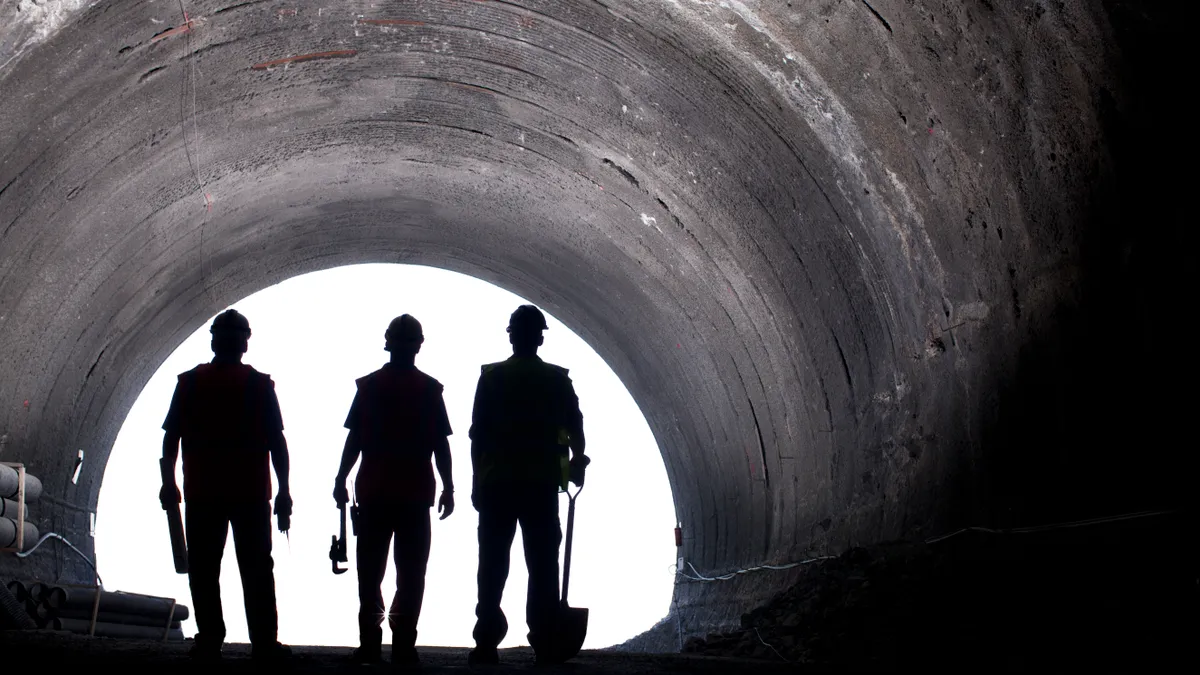Fulton Cure is a quality control manager at Jordan Foster Construction’s Dallas, Texas, office. Opinions are the author’s own.
I have a few theories about why we are having such a difficult time acquiring, and retaining, labor in the trades.
The labor market is skewed heavily in the face of a turning point that we as a society are dreading. And if we aren't, we should be. We are seeing older, more experienced people starting to retire, hanging up their hard hats.

These are guys and gals who have been in the trades for 20-plus years. These are people who are certified experts in their field. They're hanging it up and letting their bodies rest, finally.
At the same time, we are seeing a lack of involvement in the trades from the younger generations. Some do join a crew, but end up choosing not to stay. More avoid it altogether.
Although it's hard to pinpoint exact reasons as to why this is — as each person's experience varies — I believe there are three key factors that all younger tradespeople experience. One or more of these factors often deter them from getting involved or cause them to give up soon after.
Impatience in training
Training new talent takes time. It's hard to train people. Especially someone who has very little knowledge on the subject as a whole. I have an assistant who did not know what a "header" was when he was hired. That was over a year ago, and he is now solely responsible for managing the quality of doors installations and framing.
It took time, patience and sacrifice on my part. But I was able to train him to where he is now. It's all worth it, knowing I can delegate some of my responsibilities to him without concern.
People in the building industry often don't want to take the time to train new people. They get frustrated when someone doesn't know what they are doing. But if you set a training regimen in place and find someone who is good at dealing with others, training new hires can be something extremely beneficial to any contractor.
Blue collar work is dirty and tiring
I have worked as a laborer on a framing crew, as a foreman on a concrete crew and as a maintenance crew leader in a water operations department. I have arrived at home covered in everything from mud to sawdust, concrete and chlorine. Blue collar work can be dirty. I often did not smell good.
But when I saw my paycheck at the end of the week, it looked a lot better than my friends' who had to wear slacks and a tie every day. And now, my favorite game to play while driving around with my wife is pointing out everything I had a hand in building.
I take a lot of pride in my work. It's good to see the fruits of my labor. Blue collar work is extremely rewarding.
Difficult managers
Everyone has a story of a terrible boss or coworker — that person that you had to work with everyday that you just could not get along with. It's understandable that not everyone you work with is going to be your best bud.
Now, imagine that terrible boss was actually five different people, and those people were responsible for managing whatever project you are working on. Sending nasty emails if you make a mistake. Threatening to charge your boss thousands of dollars if you can't finish as fast as someone else promised you would. Getting yelled at for materials being late, when you didn't even order them.
These are all scenarios that play out daily on a construction site. Working for a bad boss can make anyone hate their job. If GCs can understand the overall need for younger — or newer — tradespeople in the industry, and help make it a more enjoyable environment, I guarantee we would see a lot more retainage and interest in the industry.
Like I said, every person's experience will vary, and these three factors are not a catch-all. But I would go as far as to say that they are, at the very least, a catch-most.
To help fix the problem, let's get excited about training new people, welcome them to the industry and show them how rewarding the trades can be.














